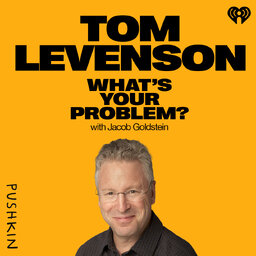Making Immigration Cheaper & Easier
Xiao Wang is the founder of a company called Boundless. Xiao’s problem is this: How do you make it cheaper and easier for people to navigate the U.S. immigration system?
Xiao moved to the U.S. from China when he was three years-old. For many years, he took for granted that immigration was slow, complicated, and expensive to navigate. With Boundless, he’s built a platform to help people who try to figure out that system every year.
In 1 playlist(s)
What's Your Problem?
Every week on What’s Your Problem, entrepreneurs and engineers talk about the future they’re trying …Social links
Follow podcast
Recent clips

Fighting Wildfires from Space
48:58

The Killer We Refused to See
39:13

The Startup Run by AI Agents
54:16
 What's Your Problem?
What's Your Problem?